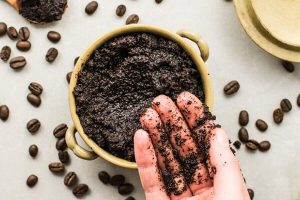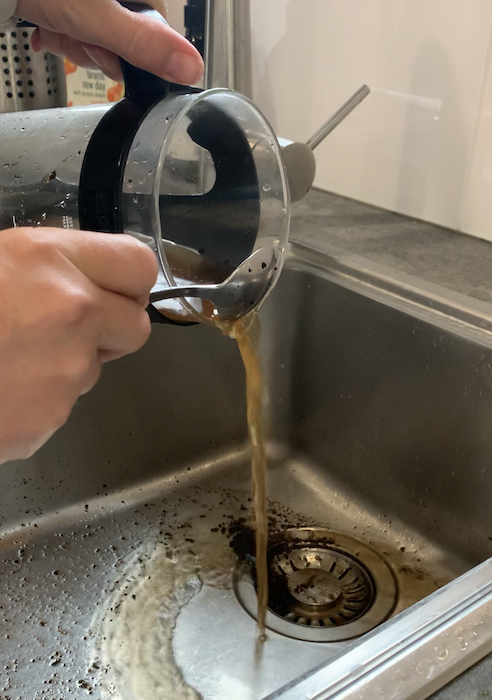Is It Safe to Put Coffee Grounds Down the Sink? - Learn You Need to Know
Is It Safe to Put Coffee Grounds Down the Sink? - Learn You Need to Know
Blog Article
We have uncovered this post on What are the consequences of putting coffee grounds down the page on the web and felt it made perfect sense to share it with you here.

If you're a serious coffee enthusiast, you may be wondering about the most effective means to throw away your coffee grounds. While it might seem convenient to clean them down the sink, this method can lead to a number of issues for both your plumbing and the setting. In this short article, we'll discover whether it's safe to place coffee grounds down the sink and go over alternative disposal techniques to take into consideration.
Alternatives to Disposing of Coffee Grounds
Trash Disposal
If you do not have a composting arrangement, another choice is to merely toss your coffee grounds in the garbage. Make sure to secure them in a compostable bag or container to prevent smells and leak. While this technique does not supply the same ecological benefits as composting, it's a secure and practical way to dispose of coffee grounds.
Composting
One environmentally friendly choice for dealing with coffee premises is to compost them. Coffee premises are abundant in nitrogen, making them an outstanding enhancement to compost heap or containers. As they break down, they add nutrients to the soil, improving its fertility and appearance.
Dangers of Putting Coffee Grounds Down the Sink
Plumbing Issues
One of the main interest in getting rid of coffee premises down the sink is the danger of clogging your pipelines. Coffee grounds do not liquify in water and can collect over time, developing a thick sludge that can block drains pipes and lead to expensive plumbing repairs.
Ecological Impact
Past the potential damage to your plumbing, placing coffee premises down the sink can also harm the atmosphere. When cleaned right into the sewer system, coffee premises can contribute to blockages in drain lines and therapy centers. In addition, the high focus of raw material in coffee premises can diminish oxygen degrees in rivers, adversely affecting water life.
Tips for Proper Disposal
Routine Maintenance
Despite exactly how you select to get rid of your coffee grounds, it's necessary to keep your plumbing on a regular basis. Set up regular drain cleanings to remove any type of build-up and ensure that your pipes continue to be clear and free-flowing.
Make Use Of a Sink Strainer
To avoid coffee grounds from entering your sink's drainpipe to begin with, take into consideration utilizing a sink strainer. These affordable devices catch strong bits, consisting of coffee grounds, avoiding them from creating clogs.
Final thought
While it might be tempting to wash coffee grounds down the sink for comfort, doing so can have serious consequences for your plumbing and the atmosphere. Rather, take into consideration composting your coffee premises or dealing with them in the trash. By embracing accountable disposal methods, you can appreciate your coffee guilt-free while lessening your environmental footprint.
Coffee Grounds Down The Drain: Are They OK?
Can Coffee Grounds Go Down the Sink?
You may be thinking, “But I pour them down the sink drain every day and I’ve never had a clogged drain!” You see, coffee grounds come from coffee beans, which are virtually rock hard by the time they’re ground and brewed. You certainly wouldn’t want to grind up the pit from a peach, apricot, or nectarine that is about just as hard because they wouldn’t break down like other foods, and it’s the same with coffee beans!
If you usually grind coffee beans in the garbage disposal because it seems the cleanest and convenient, we don’t fault you for that. And anyone who has ever had to clean up the trash with spilled coffee grounds after a dog got into it would understand the rationale. Unfortunately, coffee grounds do not break down in water, so instead of grinding up and washing away as normal foods do in a garbage disposal, they clump together and as time goes by, the grounds can form a clump and pack the drain until it develops a clog.
What to Do With Coffee Grounds
So, what do you do with coffee grounds if you can't put them down the drain? You could of course just throw them in the garbage, but we encourage you to give these practical uses for them a try!
Since coffee grounds contain key minerals for plant growth, you can use them to fertilize your garden. Coffee grounds not only fertilize gardens because they are mineral-rich, but they are also great at absorbing contaminants in the soil, particularly heavy metals. Coffee grounds are said to attract worms, which help gardens flourish. You can use coffee grounds as fertilizer by sprinkling them around your plants. You can compost your coffee grounds and use them at a later time. Coffee grounds are great insect repellents when you place them in bowls or sprinkle them around the areas you want to repel insects. To remove fleas from your dog or cat, simply shampoo your pet then rub coffee grounds throughout their fur. Rinse them off and dry as usual. Like baking soda, used coffee grounds can eliminate odors. You can place them in a bowl in the fridge and let them do the work! Mix coffee grounds with coconut oil for a wonderful face or body scrub, or to reduce the appearance of cellulite. https://www.wintershomeservices.com/blog/2019/august/coffee-grounds-down-the-drain-are-they-ok-/

We had been made aware of that write-up about What are the consequences of putting coffee grounds through an associate on another web property. Enjoyed reading our write up? Please share it. Help somebody else find it. I love reading our article about Can You Put Coffee Grounds in the Sink Garbage Disposal?.
Click Here Report this page